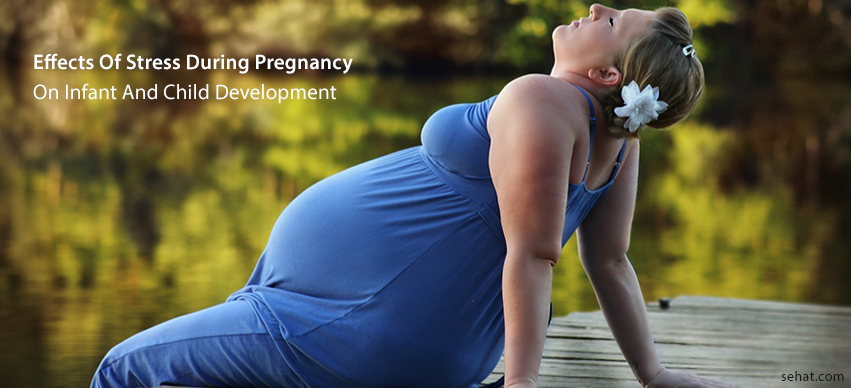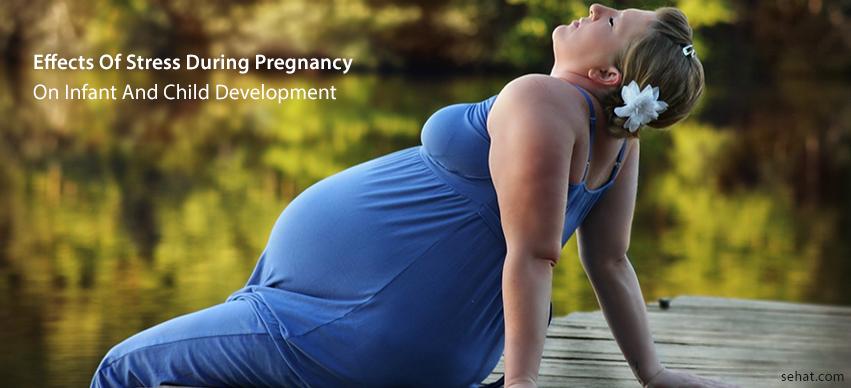Miscarriage In Early Pregnany- Signs, Causes, And Tips To Prevent
6 Min Read


Pregnancy is one of the most crucial phases for all women. Every pregnant woman desires to be mentally as well as physically fit during this phase so that her child is born healthy. Being stress-free during pregnancy has always been emphasized to ensure that the woman has a safe and healthy pregnancy. It is a well-known fact that environmental, psycho-social and cultural factors can have a significant influence upon both maternal and fetal health. It is also known to greatly affect infant and child development during the later years.
Stress during pregnancy can be explained as “The imbalance that a pregnant woman feels when she is unable to cope with demands which are shown both behaviorally and physiologicallyâ€. Prenatal stress can range from mild or moderate to severe stress. Mild stress during pregnancy is an obvious feature as each woman is constantly worried about the health of her baby as well as herself; but when this stress exceeds the normal, it can lead to detrimental long term effects and alter the child’s development.
Prenatal stress is also known to be directly associated with the number of pregnancies, the educational status of the mother and father and the average family monthly income. Some of the prenatal stressors commonly found in Indian families include
According to studies, about 8 – 13% women each year are diagnosed with anxiety and depressive disorders during pregnancy and about 30% of antenatal depression extends into the postpartum phase. Additionally, mood disorders during pregnancy are equally associated with negative pregnancy outcomes.
Cause for stress and degree of stress along with the ability of a pregnant woman to cope with these are important factors which determine its effects on pregnancy outcomes. This article will further help you to understand how stress affects infant and child development both acutely as well as its long-lasting effects upon the child’s health.
Under stress, stress hormones such as cortisol are released into maternal blood. These stress hormones are known to reduce blood flow to the uterus and fetus leading to intrauterine growth retardation (IUGR). Similarly, adverse pregnancy outcomes due to prenatal stress occur as a result of disruption of adaptations in maternal immune, nervous and endocrine systems which support a healthy pregnancy.
Mild to moderate prenatal stress has been linked to increased incidence of preterm birth and delivery of a low birth weight baby, both of which are responsible for long-lasting defects in the behaviour of the child, psychology, physiological functioning, and overall development.
Severe stress on the other hand, during early pregnancy, has the greatest impact on the birth outcome. Carmicheal and Shaw concluded that severe stress was associated with the pregnant woman giving birth to infants with the following defects:
Some of the birth-related complications associated with stress during pregnancy are:
Those infants who survive these negative pregnancy outcomes are at a higher risk of having physical and developmental delays later in life.
It is evident that there is a link between maternal stress and negative pregnancy outcomes. This strongly suggests the importance of identification of prenatal stress and providing these women with appropriate psychological intervention in order to improve maternal mental well being and subsequently its impact on infant and child development.
Different women tend to react in a different manner to the same stressor. No matter how mild the stressor may be, prenatal stress tends to affect the mental, psychological as well as physical health status of each pregnant woman.
The current antenatal care techniques are not equipped enough to identify pregnant women who may be suffering from varying degrees of stress due to numerous reasons. A stress assessment tool can be implemented for the first antenatal visit to obtain a broad idea regarding the mental and psychological status of pregnant women at first as well as subsequent visits.
Psychological assessment during initial screening and identification of antenatal stress is beneficial for pregnant women. Pregnant women having any kind of stress can be provided with appropriate therapeutic management and counselling in order to prevent maternal complications and adverse pregnancy outcomes.